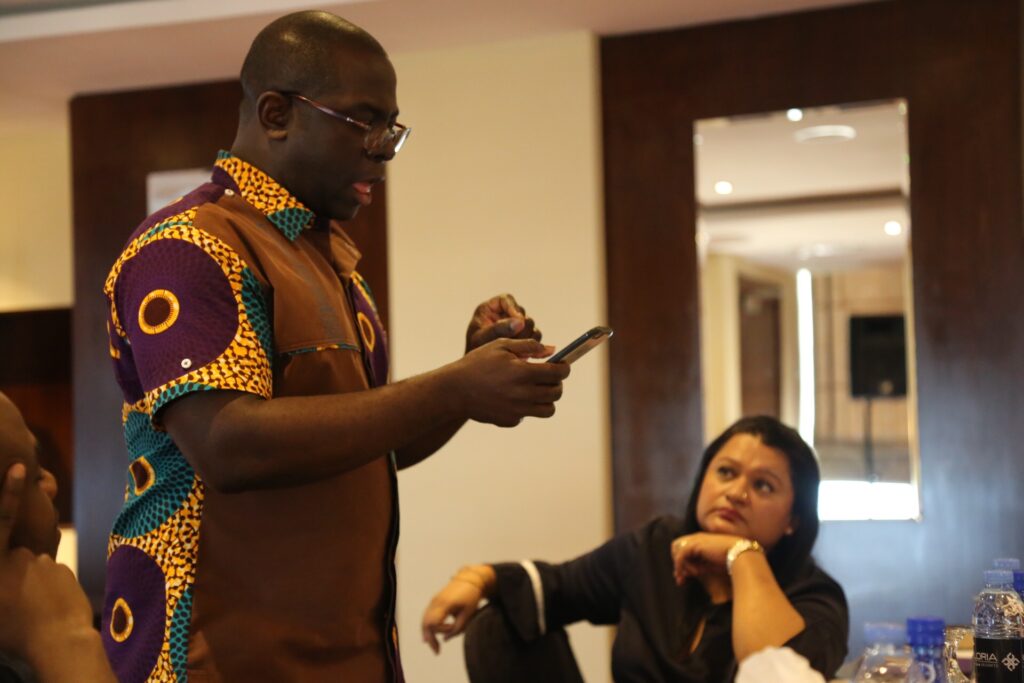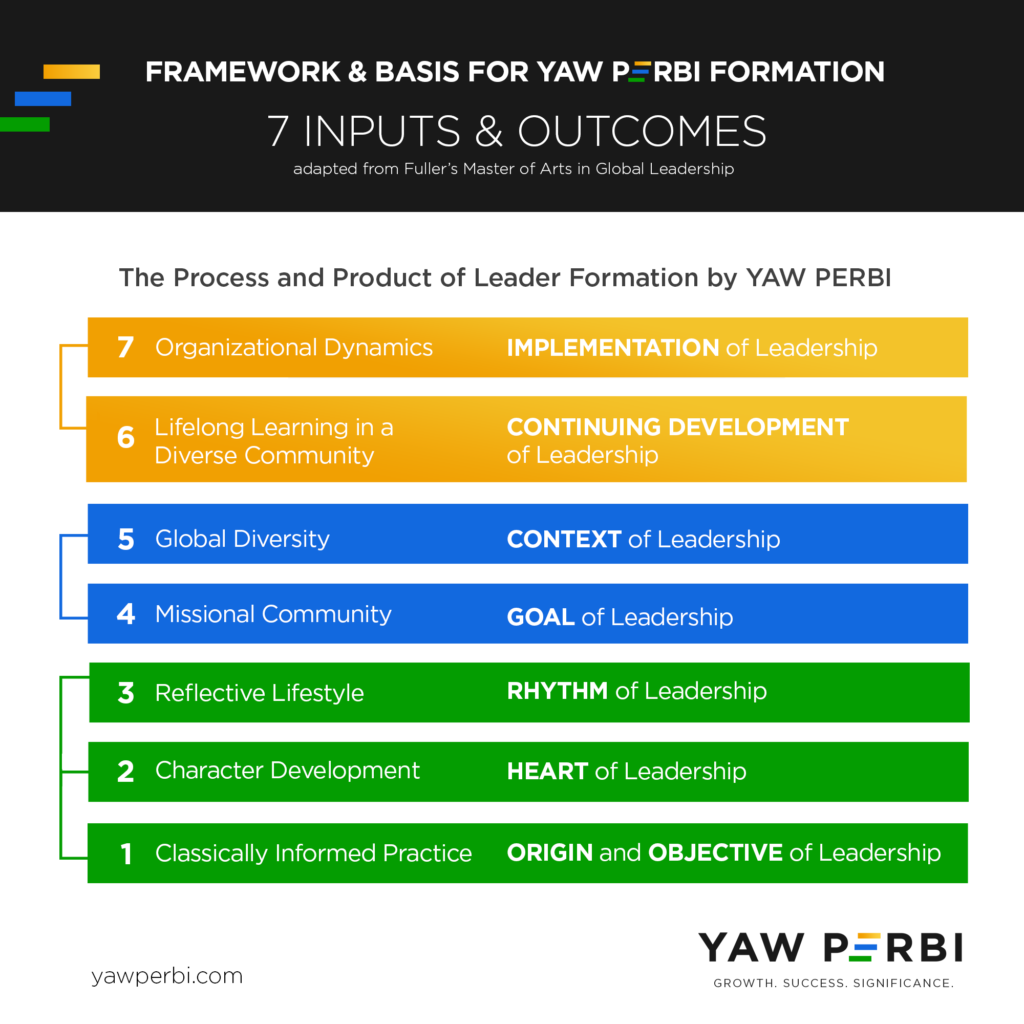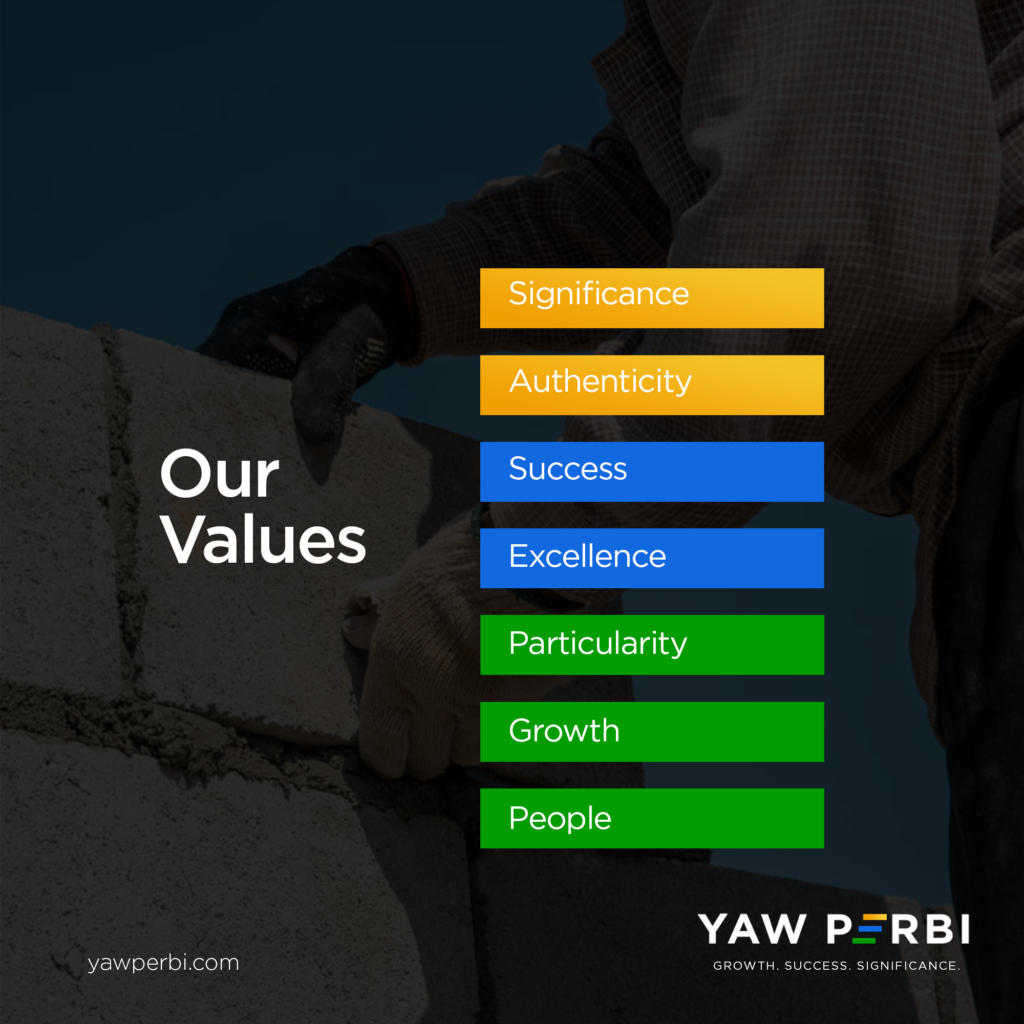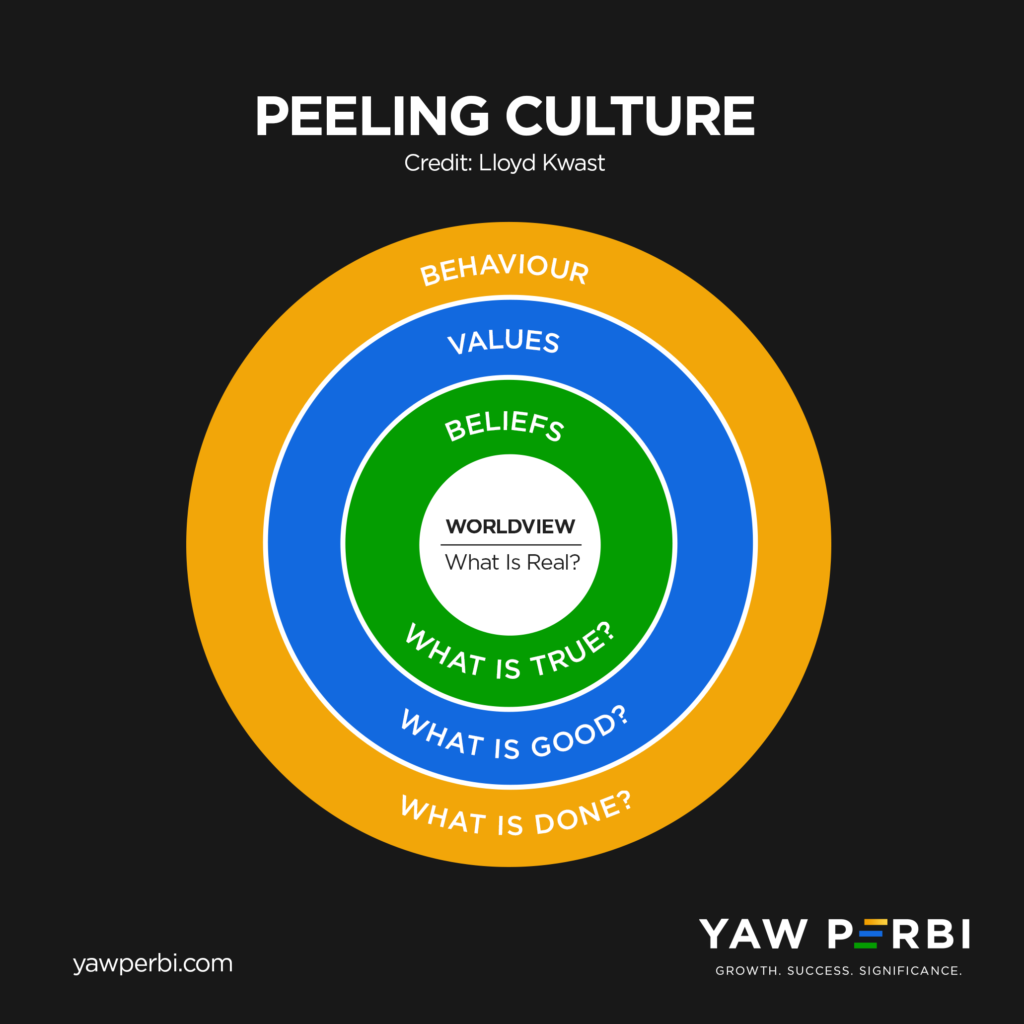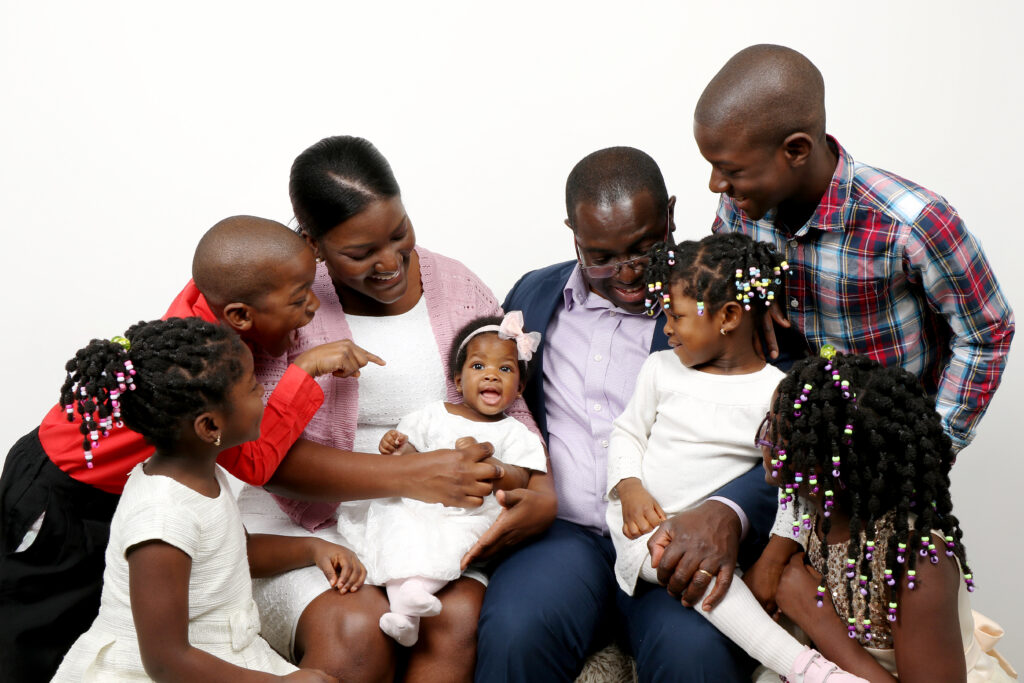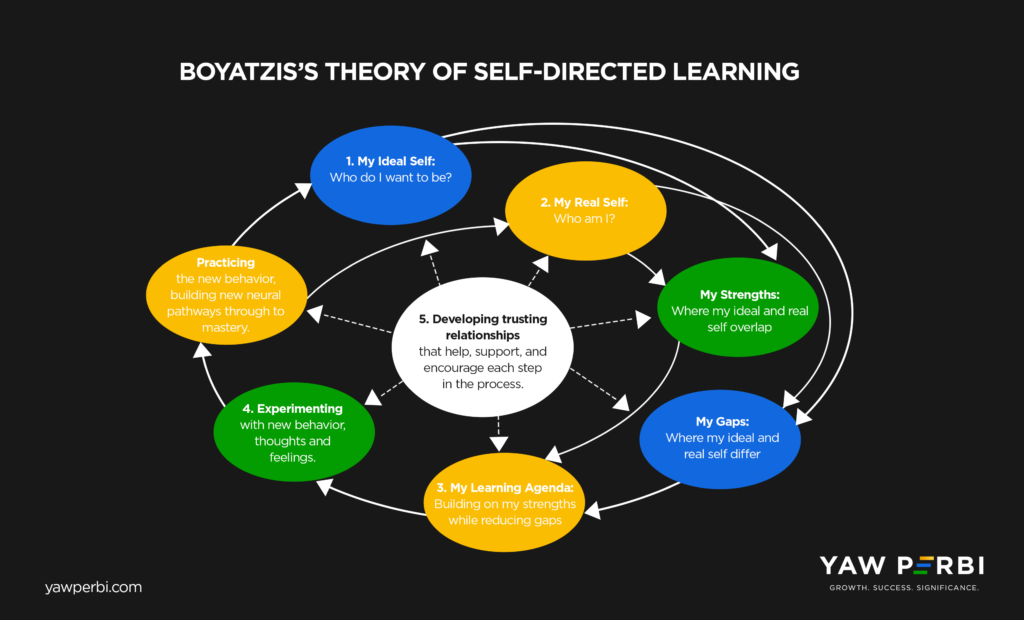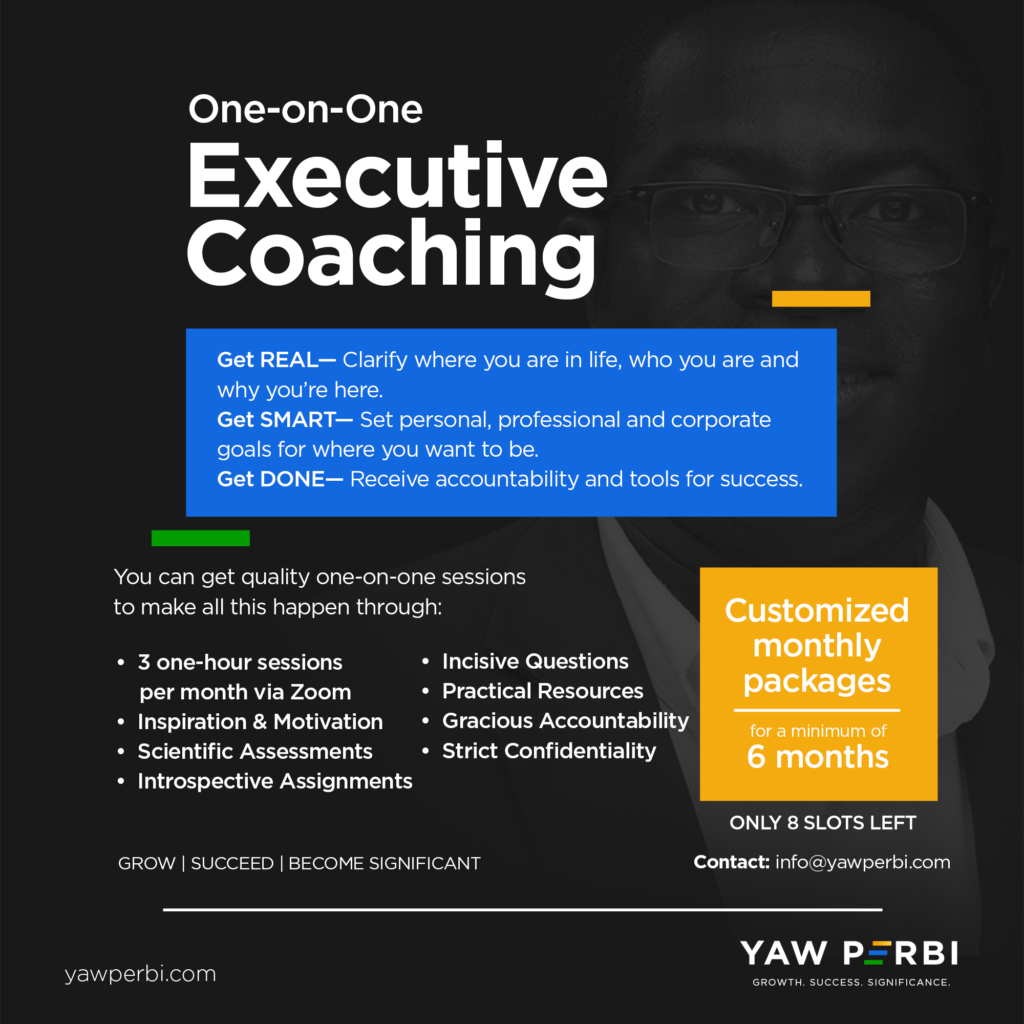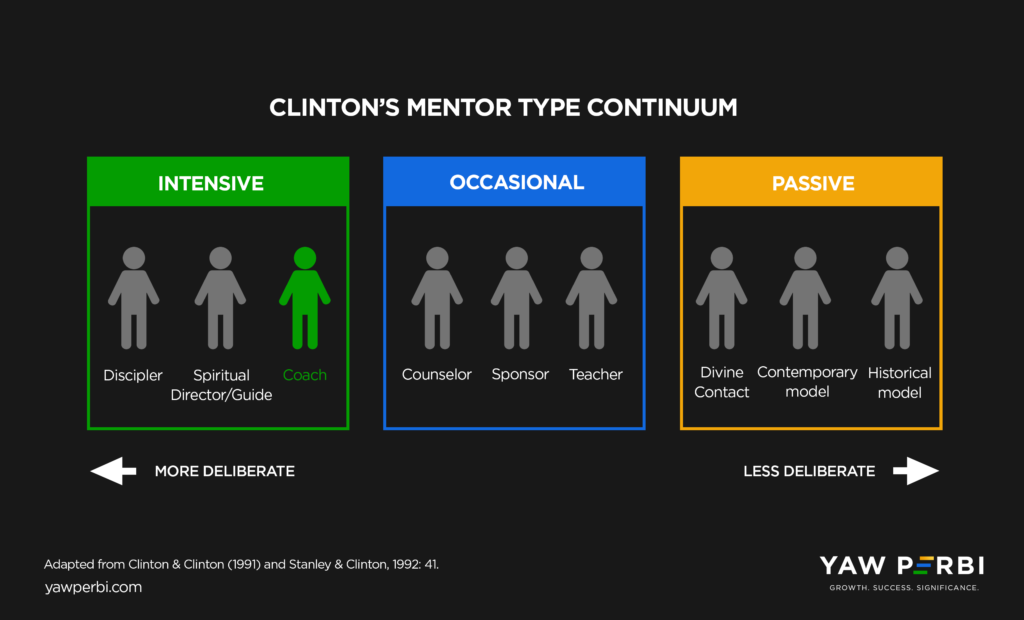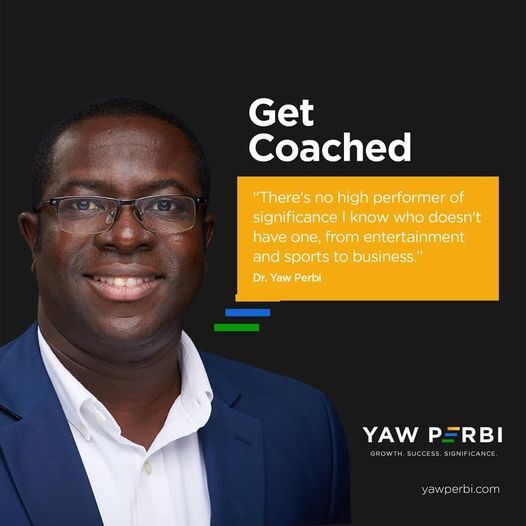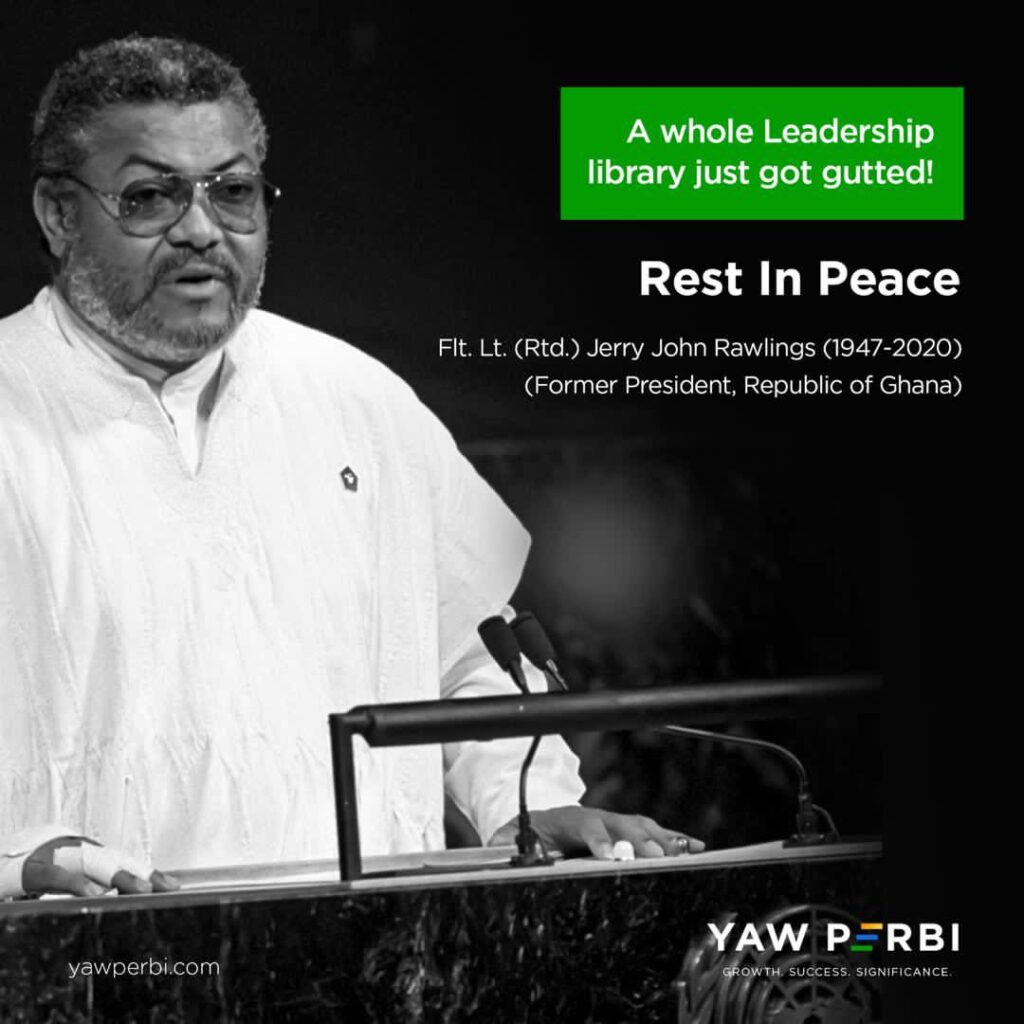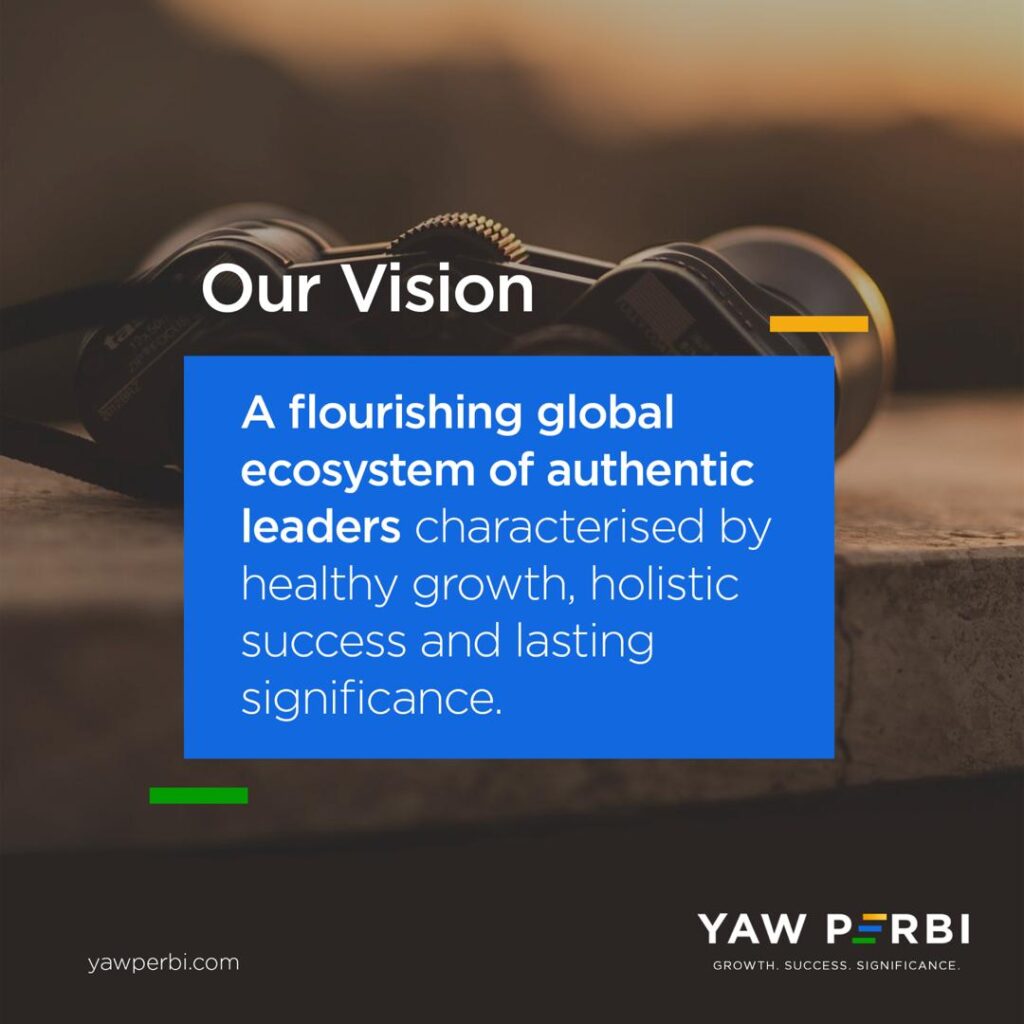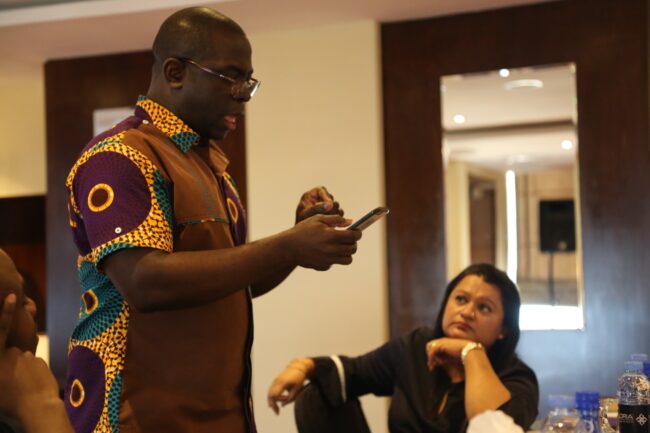
Balanced Leadership Diet
Pease porridge hot, pease porridge cold,
Pease porridge in the pot, nine days old;
Some like it hot, some like it cold,
Some like it in the pot, nine days old.
That ‘Pease Porridge’ Mother Goose nursery rhyme is a succinct summary of the biases, tendencies, idiosyncrasies and preferences we all have such that without a certain degree of intentionality we might never do one thing or the other at all because it simply isn’t my thing.
In my medical school days, I found it über interesting that each specialist professor would talk about their field with such passion and all-importance as if the whole body were an eye or liver or skin or heart or bones or whatever. No matter the medical condition, they would find a cause or effect related to their darling body part. In fact, we believed there were consultants who could literally hear and spot diagnose a heart murmur without a stethoscope just by walking into the consulting room!
In leader formation, I have also found that depending on the trainer or coach’s personal preferences, biases or sweet spot, they zoom in on one area (eg. character development or strategy or organizational culture) to the detriment of other equally important aspects of leader formation.
During my Master of Arts in Global Leadership at Fuller, I encountered a schema for the programme which I fell in love with. I have since adapted it as ‘7 Inputs & Outcomes of Leader Formation’ at YAW PERBI, providing a framework and basis, process and end product for our leader formation, whether via coaching or consulting, in our authoring of resources, and certainly in our speaking and training. Here it is (diagram below).
THE SEVEN LEADERSHIP FOOD GROUPS
Your body needs a nutritional balance of carbohydrates and proteins, fats/oils, minerals and vitamins. This is accomplished through food groups like grains, milk products, meats, fruits and vegetables. Similarly, your head, heart and hands require these seven ‘food groups’ to nourish and form the basis of leader development:
1. Classically Informed Practice: This is the origin and objective of leadership. Classical means ancient. Fuller’s original is Biblically-informed for obvious reasons but while that is true for us at YAW PERBI, we also include Ancient African, Asian and Greek/Latin literature (Aristotle, Socrates, Plato). The point of rooting leader formation in a meta narrative is that many people consider the whole area of leadership/leadership development as a creation of Western business schools and or even the modern American management industry but no. The art and science of leadership dates back 6,000 years in scripture, and with the likes of Akhenaten, King of Egypt (1380-1334 BC), Moses (1391-1271 BC), Lao Tzu (604-531), Cyrus the Great (600-530BC), Confucius (551-479 BC), Plato (427-347 B), Aristotle (384-322 BC) and Cicero (106-43 BC) throughout history.
2. Character Development: Constitutes the heart of leadership. At the end of the day, the heart of the matter is the matter of the heart. As I’ve heard it said time and again, charisma without character is a disaster waiting to happen. Invariably it does. That character is the bedrock of authentic and long-lasting leadership cannot be overemphasized.
3. Reflective Lifestyle: Herein lies the rhythm of leadership. This isn’t one of Fuller’s original six. I included it after a meeting with a group of senior leaders mentoring emerging leaders in Africa. Dr. Joshua Bogunjoku, my senior medical colleague and big brother who is the international director for SIM really passionately brought the necessity for stillness, silence, introspection and such to the fore to which I agreed and couched this indispensable ingredient.
4. Missional Community: This is the goal of leadership. Leadership is about serving and influencing a group of people (community) towards a certain noble purpose (cause). That cause or mission, according to my worldview, is a subset of a meta narrative known as the missio Dei that must ultimately bring glory to the God of the universe, benefit creation (people being chief among creation) and vanquish evil. Without a flourishing community on this vital three-fold mission, what the heck is leadership for?
5. Global Diversity: It goes without saying that we live in a global village, made even tighter still by the meta internet connectivity in this Covid-19 era. Not even spatial distancing can change the closeness. It is not uncommon for leaders today to have team members strewn across different timezones and having worldview, cultural beliefs and ethnic values that are very different. Global diversity is the context of leadership today.
6. Lifelong Learning in a Diverse Community: Herein lies the continuing development of leadership. As you already know, the present continues learning of a leader gives them the right and means to keep leading. The day we stop learning, we stop leading. Lifelong learning is catalyzed in diverse community, physical or virtual.
7. Organizational Dynamics: This is how leadership is implemented. I once met a former Fortune 500 company CEO near Chicago who described companies as ‘a necessary evil.’ At the end of the day, as long as two or more people come together, we need some sort of ‘organization’ to make things happen. It’s wonderful to have a great heart, but without the cutting edge knowledge and skillful hands to steer organizations with all their dynamics, these great ideas and causes won’t last very long.
CONCLUSION
For the last decade I have believed in and practiced going deep with leaders rather than merely going wide (mass production). I believe in Maxwell’s Law of Process, that leadership is built daily; not in day. Consequently, whoever walks long enough with us at YAW PERBI will invariably realize that they have been well-fed and well-formed holistically, with each of the above seven leadership food groups amply supplied, digested and fleshed out.
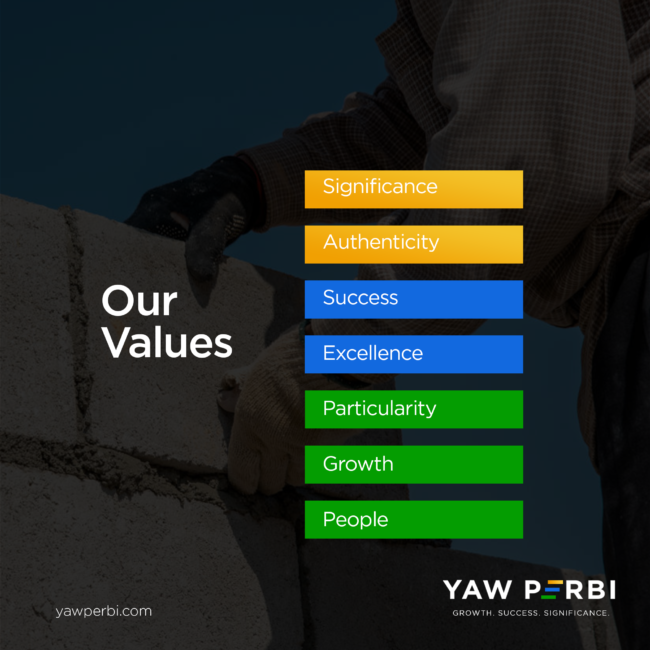
What’s Good? | A Values Convo
A common greeting among today’s cool people is “what’s up?” to which one may sometimes get some really sarcastic answers from uncool people (lol!). A not so common greeting would be, “What’s good?” That would be slang for an invitation to a values conversation. I’ll explain.
For the last couple of weeks I have been raving about the importance of vision, mission and values. My thesis is that these three are so life-giving, life-forming and life-determining that they are aptly described as DNA, be it personal or corporate. I did share some examples of vision and mission statements of companies as well as my own family’s, encouraging professionals to put in the time and work to hone these and commit to them to the same degree they do their corporate work (if not even more). Now a final word on the third piece of the DNA: values.
WHAT ARE VALUES?
Values are what matter most to us—what we value. Yes, our values are literally what we value. They are what we consider to be good, what’s good. What matters most to us about the kind of people we are, the type of work we do and how we behave as we do the work are our values.
Values are the standards a person, family or organization holds to be most important that cause individuals to make decisions and act the way they do. As a mentor of mine puts it, values “represent how a community aspires to act or function as it carries out its mission in pursuit of is vision.” I like this element of aspiration—perhaps we may not have quite attained that standard of behaviour or character or whatever ideal yet but it’s on our books to keep reminding us to keep stretching towards it.
So! In summary, if vision is what we want to SEE and mission is what we will DO to see what we want to see then values determine HOW we will behave (be and do) as we do what we want to do in order to see what we want to see.
PEELING BACK THE LAYERS
Whether ethnic or corporate, culture is basically how things are done here a.k.a behaviour. What many do not realize is that BEHAVIOUR—“what’s done”—is only, quite literally, the tip of the iceberg (which is usually about 10% of the actual size of the iceberg!). Behaviour is only what is seen and experienced on the outside—from dressing to speaking. It’s the soil/crust of the earth (another metaphor), if you like.
Beneath behaviour are the VALUES—“what’s good”—informing it. Digging deeper beneath sea level or soil level we will find the BELIEFS—“what’s true”—or “faith assumptions”, that are determining these values.
Deepest of all, at the bottom of the iceberg or at the core of the earth is our WORLDVIEW—“what’s real.” That is the root of the fruit we see called behaviour or culture.
Whether it is individuals or families, churches or corporations, how many times haven’t we attempted to change behaviour without digging all the way to the worldview source?
VALUES ARE NOT PRINCIPLES
I am of the Covey school of thought that values are not synonymous with principles. Principles are timeless, universal laws that govern everything (from physical laws of Physics to spiritual laws) but you can choose to value them and/or have values based on those laws or not. For example, there is a certain ethnic group I have come across that does not give children eggs (behaviour/culture). Undergirding this is not valuing eggs in children’s diet. But underlying this further is a belief that the children would become bald (like an egg) and become thieves (or both). At the very core of this ethnic culture is a certain animistic worldview that produces the belief that leads to the value and produces the behaviour of not feeding children eggs.
This value, no matter how cherished, goes against the principles of nutrition. Breaking the principle because of this value results in protein-energy undernutrition in the community whose two primary chronic forms are kwashiorkor and marasmus.
SO WHAT’S GOOD?
It is absolutely essential that everyone, personally and corporately, determine their values. Values comprise part of the DNA that gives, forms and determines the kind of life you lead. But like the chemical bases that form DNA, it is worth examining the formative beliefs and underlying worldview that bring forth these values. In the end, what’s good is determined by what’s core.
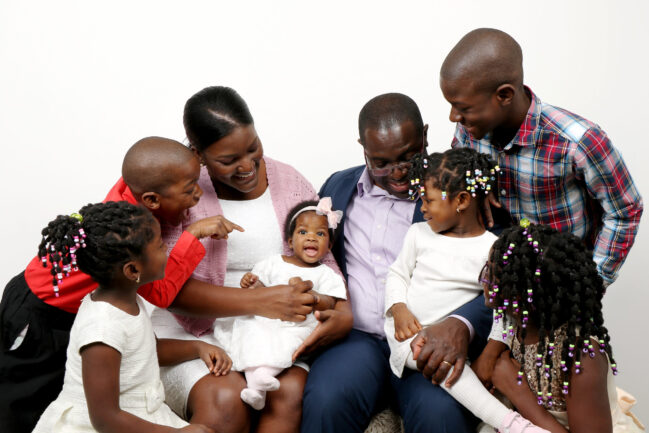
Family DNA: Vision, Mission & Values
What if we took our families as seriously as we take our corporate work, beginning with crafting solid family vision and mission statements and clearly outlining our family values?
When I was still in my late teens and learnt about mission statements from The 7 Habits of Highly Effective People I was über excited! I was an eager beaver, wanting to learn more and actually crafting one for myself. In addition, I was eager to teach everybody who would listen to craft one too. In fact, a large part of why and how The HuD Group was born was because we wanted to inspire and empower young people to discover their God-given purpose and reach their full potential using tools like personal mission statements. Then I tried to convince my parents to work with my siblings and me to create one for our family. Let’s just say, I did not succeed.
Most of us work in places that have vision and mission statements and a slew of values. Those of us who are C-level leaders are responsible for recasting vision constantly, clearly and creatively as well as rehashing our mission and values. I would surmise the majority of us take this sacred duty of leadership very seriously. How come we don’t do same for our families? Most smart, skillful and dedicated professionals I know have no family vision and mission statements and haven’t bothered to distill the family’s values, let alone clearly state these and have them written down.
Yet as already asserted in a previous article, vision, mission and values are the DNA of both individuals and organizations as they are really of life-giving, life-forming and life-replicating essence. So it is with families. While every family has its physical DNA passed down from ancestors, how about the important metaphysical DNA represented by our families’ vision, mission and values?
Today, I wish to share with you my own nuclear family’s vision and mission statement for our home. We have a broader vision and mission that encompass not only our home but also all the corporate and charity ventures we’re involved in but what I’m sharing here is specific to our home.
VISION FOR THE PERBI HOME
An INCUBATOR for hatching godly, effectual leaders for the mission of God.
MISSION STATEMENT OF THE PERBI HOME
Ours is a family in which God delights because God is the centre of all activities in this household. Every ordinary activity becomes worship by practising God’s presence.
We are first and foremost Christians thus sharing fellowship and building each other up by lifestyle is a matter of course, and if necessary doing so with words. The flame on our Family Altar shall always burn brightly.
In our household, Jesus Christ is the standard of behaviour. This is the Potter’s house, where God by His Spirit moulds members and guests alike to conform to the image of Christ in attitude, thought, word and deed. The Word of God is our family constitution.
Ours is a neat, comfortable, cosy, Spirit-filled home; an inspiring environment which is as stimulating as is peaceful, is grace-filled, God-honouring, purpose-driven, paradigm-shifting, principle-centred, and character-based. Any entertainment must be wholesome, building & beneficial.
The Perbis’ is a home full of warm, smiling, serviceable and humble people who will at all times be of use to each other and to all of God’s people in a holistic manner.
This is a missionary family—living missionally, raising, receiving, sending and supporting carriers of the gospel of Jesus Christ.
That it will always be said of our home, our legacy, all to the glory of God: the standard of a Christian marriage, the epitome of a true Christian family.
CONCLUDING ENCOURAGEMENT
At the start of each week, as we round up our weekly sabbath, we remind ourselves of our vision and mission statement. Even our three-year old knows what our vision is. She can shout “incubator!” Not only are our values embedded in our family mission statement, the children find the English version of their names in there as well.
This is holy work and I insist that every coaching client of mine works with their spouse and children (if they’re grown enough to contribute) to work on crafting solid family vision and mission statements and clearly outlining their family values. And of course, a key thing is to ensure that their personal and family values align with who they’re working for/with in the corporate world. No DNA, no life. Good DNA, good life. Bad DNA, bad news. Let’s take our families as seriously, nay, even more seriously than we do our workplaces. After all, companies come and go but family is forever.
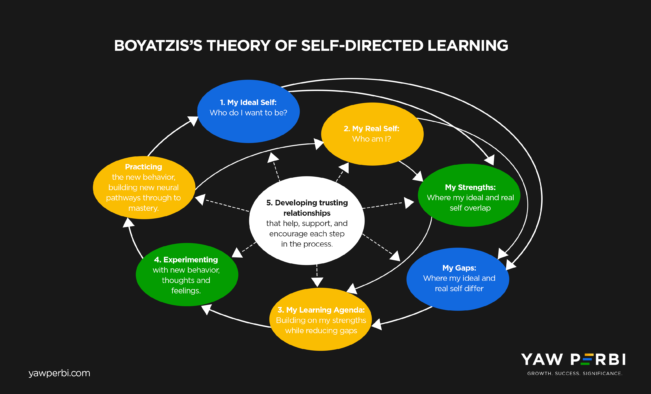
GET COACHED | How does it work?
“Your journey to leadership is likely to take many unexpected turns. Life is full of challenging situations, including ethical dilemmas, midcourse career changes or burnout, seemingly intractable interpersonal challenges, marriage and family issues, failures, and loneliness. At times, you may feel you are losing your way or have gotten off course from your True North. Getting back on track alone is very difficult, perhaps even impossible” (Bill George). That’s why you need a coach.
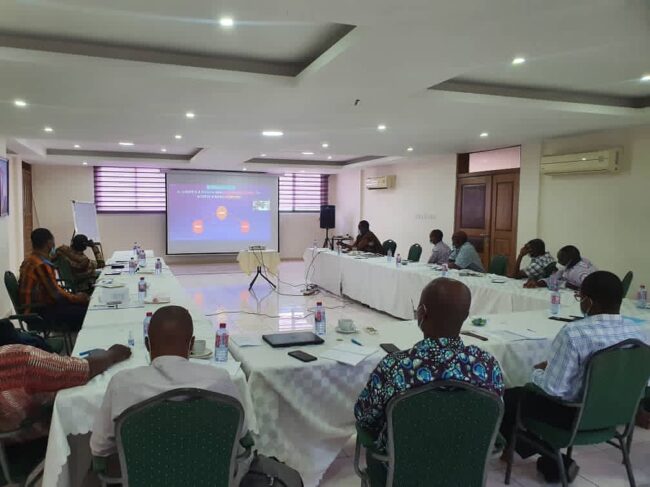
A group of Medical Superintendents in Ghana viewing a live YAW PERBI presentation on Emotional Intelligence via Zoom
If you’ve followed me on social media over the last few days you should’ve noticed a couple of posts about my excitement to train a group of Medical Superintendents in Ghana on Emotional Intelligence (EQ). Of course everybody needs (EQ) but one reason doctors in particular do is that they tend to think because they are smart and got into med school they would be successful in life and leadership. To our rude shock (and I say ‘our’ because I am a doctor myself), after a certain threshold, intelligence (IQ) doesn’t matter anymore, and what gives the winning edge to succeed is all EQ.
NO ONE CAN HELP THEMSELVES WITHOUT BEING HELPED
After an hour of training on what EQ is, five reasons why it’s key and how to acquire it, I left them with Boyatzis’s theory of self-directed learning. I first encountered this during my read of Primal Leadership, a book he co-authored with the chap who most popularized EQ from 1995 till date, Daniel Goleman. Boyatzis’s map (see below) begins with a hopeful “Who do I want to be?”, a picture of your ideal self. This existential question is at the very apex of Maslow’s hierarchy of needs (if you remember); it is a question of self-actualization. But the next question, which in my opinion really should be the first, is ‘Who am I?’, your real self.
Integrating those two questions reveals one’s strengths (where your ideal and real self overlap) and your gaps (where your ideal and real self differ). Your learning agenda or growth plan, therefore, basically involves building on your strengths while reducing your gaps. And so you begin: experimenting with new thoughts (head), feelings (heart) and behaviours (hands). Practicing your new behaviours actually results in building new neural pathways to success/mastery.
But here is the kicker: Central to all of these points, steps, and pathways is “DEVELOPING TRUSTING RELATIONSHIPS that help, support and encourage each step in the process.” Again, that’s where a professional coach comes in. Even in this so-called ‘self-directed’ learning, no man is an island and needs the vital trusted relationships to make their growth and goals happen.
COACHING MOMENT
Do you have someone that will tell you the truth and to whom you can tell the truth? Do you have the authentic relationships and customized resources to clarify your beliefs and values and understand vital personal and professional issues and receive honest feedback when you need it most?
A coach’s responsibility is to provide content, insight, tools, wisdom, framework, ideas, and feedback. YOUR responsibility is to move from awareness to action and accountability. Our coaching provides many structures for you to meet your individual and organizational goals.
For John Maxwell certified coaches like myself, whether it’s one-on-one executive coaching or one-on-few, we like to say that the objectives of coaching include, but are not limited to:
- Discovery of personal identity, emotional needs, purpose (vision & mission) and values
- Crafting of personal, professional and corporate Growth Plan
- Adding an objective and supportive third party to your leadership team
- Increasing accountability of your personal and professional goals
- Improving specific skills related to your role. Such as managerial skills, communication, conflict resolution, time management, productivity, and effectiveness
- Sharing best practices from other organizations that have done similar work
- Reviewing strategic business decisions related to operations, customer service, marketing, financials, and more
- Being a sounding board
- Preventing problems, thereby avoiding expensive, time consuming or embarrassing actions
- Supporting your growth past your limiting beliefs
- Conflict resolution
- Creating a team atmosphere
- Relationship development for success and significance.
COACHING OPTIONS (FOR C-LEVEL EXECUTIVES, OWNERS & GENERAL MANAGERS)
Coaching Categories: Depending on your goals and budget, at YAW PERBI we offer Green, Blue and Gold level coaching. Currently only Gold services are available, and they are limited.
Time & Place: All coaching programs require a minimum time investment of 6-12 months. Coaching is a marathon, rather than a sprint! Depending on whether Green, Blue or Gold level, the coaching package includes 2, 3 or 4 sessions a month lasting approximately 60-90 minutes. Sessions can be at your office, my place of business, or a mutually agreed upon location. In these days of COVID-19, online coaching is our mainstay via Zoom. Phone coaching is also an option but I prefer to see the individual to observe body language and such.
Special arrangements: Sometimes included in a gold package is two full days of shadowing, facilitation of a two meetings of your choice (up to 2 hours each), and unlimited phone calls and emails in between sessions. In addition, you or any of your employees will benefit from a 25% discount for any company training/workshops.
Other coaching services: Group Coaching, Sales Coaching, Couples Coaching, Business Partner Coaching, Youth Coaching, Relationship Coaching, Genogram Coaching and more (they include these but not limited to them).
Payment arrangements: These are to be made before services are provided, and as agreed upon via this website, mobile money, PayPal, cheques or bank transfers.
Miscellaneous: We will always be punctual. If you need to reschedule, 24 hours advance notice is required or one-half of the coaching session is lost. If for some reason I need to reschedule and do not do so with a 24-hour notice, you will be credited with an additional one-half coaching session, at no additional charge. Our coaching relationship is completely confidential. We will never share your identity or any information about you with any other person or organization without your expressed consent. In the unlikely event that there are concerns that need to be referred to another professional, I may be able to make that suggestion to you.
Completing our coaching relationship is a mutual decision. While my retention percentage is very high, there may come a time when you determine that it is time to complete our coaching relationship. If and when that time comes, I expect that the coachee will give me at least four weeks’ notice. That will give us time to summarize your growth/learning and strategize your next steps.
Our services are unconditionally guaranteed. If at any time you feel that you are not getting the support, honesty, coaching, or training that you expect, then you need to tell me.
LET’S GO!
If you are serious about growth, success and significance you need a coach. The proof of your commitment is your investment of quality time, best effort and substantial money. Even as a coach, I also have a paid coach. Everybody needs somebody to coach them. So! Make arrangements here and now for a 30-minute exploratory call to see if we would be a good match.
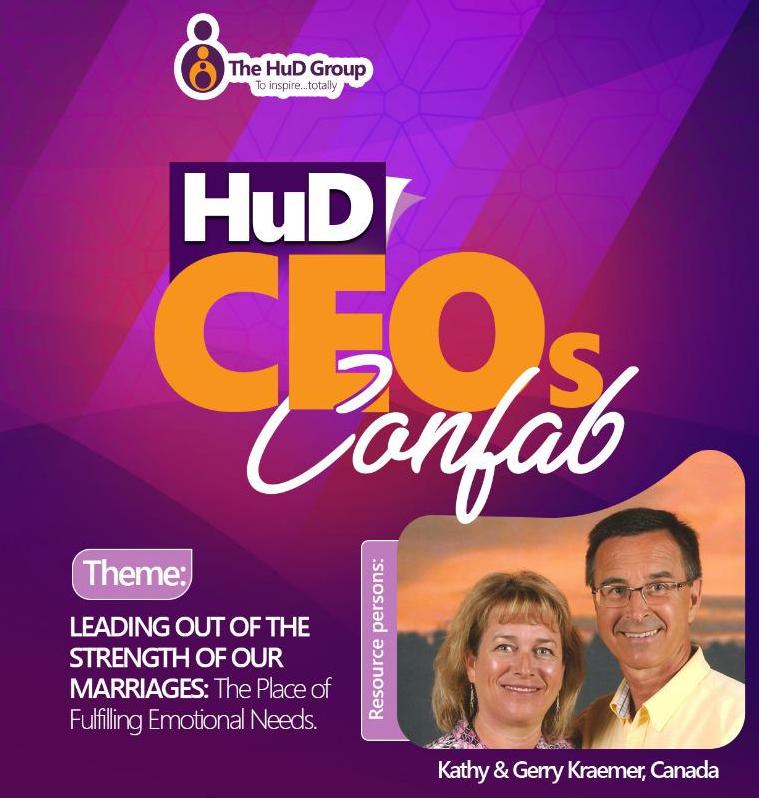
A Global Gathering: the blessing in the curse.
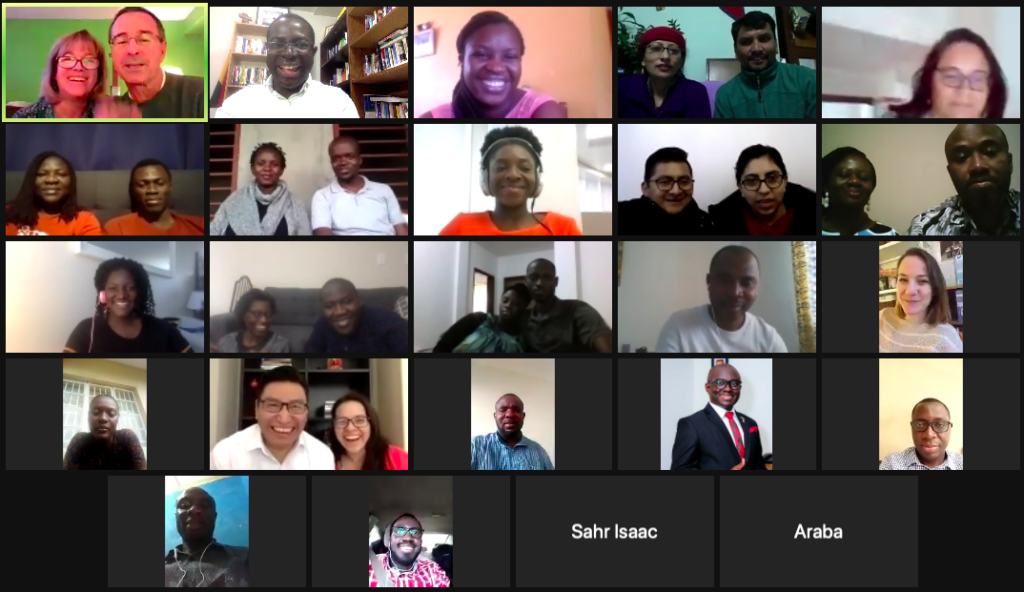
Leaders from over a dozen countries on all six continents gathering online for an annual CEOs Confab
As you already might know I am the Global CEO of The HuD Group, a faith-based leader development organization that originated from Ghana but now has presence in over 20 countries of the world, on all six continents.
For the last four years, every November we have hosted a HuD CEOs Confab. In 2016 we had two separate CEO gatherings in Accra, Ghana and Montreal, Canada. This was followed by the 2017 Confab in Alexandria and Cairo in Egypt. In 2018 we were in Dubai. Last year, 2019, we met in Abidjan and Bouake, in the Francophone West African nation of La Cote d’Ivoire. In 2020 we had planned a special Confab with our spouses and were supposed to be in Israel but here we are, thanks to COVID-19!
Today was Day 1 of our annual Confab. We met on Zoom. The blessing of that though is that nearly EVERYONE was able to show up (with most spouses present) because there was no hustle getting time off regular work, no financial or ticketing challenges and above all no visa headaches!
Thanks to modern technology, amidst a global pandemic we joined the call from eastern and western Canada, USA, Nepal, Switzerland, Uganda, Ghana, Mexico, Germany, The Gambia, Cote d’Ivoire, Sierra Leone, Kenya, Guatemala, Somalia and Australia. A few of us should join from Nigeria, Liberia, Pakistan and Colombia in the coming days, DV.
Our theme is “LEADING OUT OF THE STRENGTH OF OUR MARRIAGES: The Place of Fulfilling Emotional Needs” and we have an AMAZING Canadian couple to lead us into that.
THE KRAEMER ICING ON THE CAKE
Gerry and Kathy both grew up in Western Canada where they committed their lives to Jesus Christ as Saviour and Lord during their adolescent years. Immediately after marrying in 1981, God called them in a clear and dramatic fashion to serve Him in the French-speaking province of Quebec, Canada. Ever since, they have been in full-time Christian ministry together, including five years with Campus Crusade for Christ (evangelism and discipleship), 22 years of pastoral ministry and six years as the chaplain of the Montreal Alouettes professional football team.
In 2007, “the gates of hell” unleashed a serious of attacks on the Kraemer’s marriage and they plummeted to the brink of divorce. In the summer of 2008, during a week of intensive counselling with Larry & Lorrie Russell at the SHM Retreat Center in Ontario, Canada, God completely healed, restored and transformed their marriage. Upon returning home, they immediately began to share the amazing story of the miracle of the “resurrection of their marriage” to individuals and groups in their entourage…and God used their story to touch, encourage and heal marriages around them.
The opportunities continued to increase so dramatically that they resigned from their pastoral position in the fall of 2010 in order to dedicate themselves to a full-time ministry of speaking (prevention) and counselling (crisis intervention) to help couples. Today, they speak and teach together at conferences, Bible Camps, retreats, banquets and Bible Schools in both English and French, sharing with thousands of people the tools that can help them experience a healthy and flourishing marriage. Their honesty, practicality and humor make them easy to listen to and the wisdom of their teaching is hard to forget.
Gerry and Kathy reside in Terrebonne, Quebec and they are the parents of three young adults: Timothy, Jessica and Rebecca. In their spare time they enjoy golf, tennis, traveling and spoiling their grandchildren both in Canada and the USA!
CONCLUSION
Wow! What a big blessing amidst the Covid curse. Oh! And today happens to be U.S. Thanksgiving. Happy Thanksgiving!
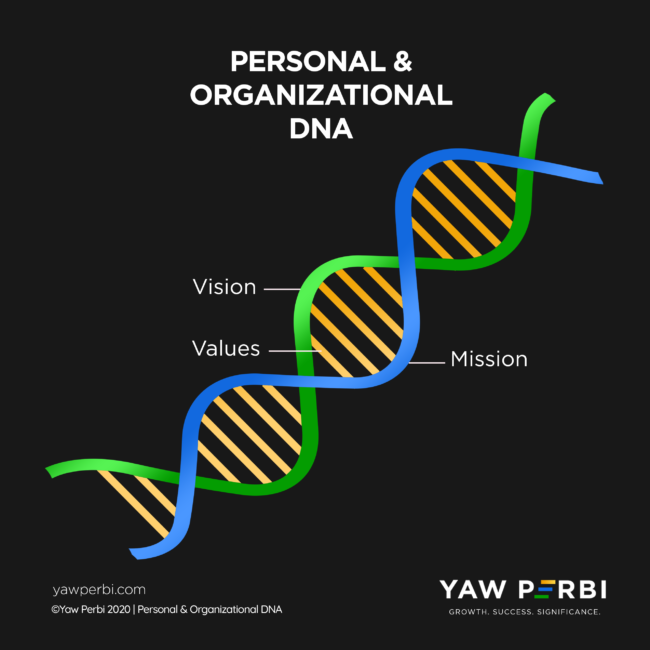
Personal and Corporate DNA: Vision, Mission and Values
Your vision, mission and values constitute your DNA, personal and corporate. Here’s why and how.

Vision, mission and values are really the life-giving and life-forming essence of persons and organizations
Whether one-on-one executive coaching or one-on-few, an exercise that energizes me most is getting into personal/corporate vision, mission and values. Once, I was invited to be a keynote speaker at an organization whose founder and CEO I greatly admire and respect. After the plane ride and having rested up, I got to their premises and looked round their impressive corporate building (no mortgage; all already paid for). I couldn’t help noticing the huge murals that spelt out the organization’s vision and mission. They were literally bill boards all over the walls trying to spell out why they existed and what they sort to accomplish.
Then I began to be concerned as what had been stated as their vision looked like what should be the mission and the mission was… well, let’s just say I was concerned. How was I to bring this up to the ‘big man’ without offending him too much, especially knowing how vital vision, mission and values are in giving life and forming persons and organizations? Without a deep and urgent intervention regarding the writings on the wall, I was afraid the writing was on the wall.
SOME CORPORATE SCIENCE
Permit the doctor in me to explain some fundamentals about DNA. DNA is the material that carries all the information about how a living thing will look and function. Each piece of information is carried on a different section of the DNA. These sections are called genes. DNA is short for deoxyribonucleic acid. It is in every cell of every living thing, even your fingernails! DNA is tiny but consequential; scientists need to use very powerful microscopes to see them. DNA has a complex structure but basically looks like a ladder that is twisted into a spiral. Each piece of DNA has two long strands (like the sides of a ladder). The two strands are joined together by chemical bases that form the rungs of the ladder.
Person and organizations are living things also. Vision, mission and values are the stuff that carry all the information about how they will look and function, survive and thrive. Vision and mission are akin to the two helical strands of DNA and values are the pieces that hold both sides together like the rungs of a ladder. This is the biochemistry of corporations.
Do you know that what determines how you look (eg. colour and texture of your hair, colour of your eyes and skin), how your lungs work, your blood type etc. are all determined by DNA? There are about 3 billion pairs of the chemical bases on the strands that connect with the other strand. The order in which the bases are arranged is very important. It forms a code that tells cells to make certain kinds of proteins. The differences in these proteins is what makes different living things—such as a plant, a panther, and two different people—different. You and I are different as persons, so are Unilever and Microsoft, or F.C. Barcelona and Manchester United, based on DNAs. Arsenal’s DNA codes for redness and Chelsea’s for blueness.
When DNA works correctly, it helps keep the body functioning properly. DNA helps cells to make proteins, which the cells need to live. DNA also allows living things to reproduce. The genes in DNA pass along physical traits from parents to children. Sometimes there are mistakes in DNA. These mistakes are called mutations. They can cause diseases and other problems.
INTERVENTION
Here are two disturbing observations I’ve made regarding vision, mission and values. One is the peer pressure of having them because just because ‘everyone else does’ and it’s in vogue. This pressure to look good because you have a mission statement on your office wall has gone even to the extent that people even look at those of companies or persons they admire and just blindly copy them as their own! Imagine my body copying your body’s DNA! The other disturbing observation is that people have no idea which is which (particularly vision and mission) and have them all over the place! If you need personal or corporate coaching to get this right, please do! This is vital. Vision, mission and values are really the life-giving, life-forming and life-replicating essence of persons and organizations.
VISION & MISSION
Vision is literally what we want to SEE. It is about Being. Think of it as a noun. Mission is what we want to DO to see what we want to see. It is about Doing. Think of it as a verb.
So for example, my vision for this executive education company YAW PERBI is to see a flourishing global ecosystem of authentic leaders characterized by healthy growth, holistic success and lasting significance. Consequently, our mission is to offer authentic and customized relationships and resources to C-level executives to grow personally, succeed professionally and become significant corporately.
Another family company that is into library services for children is known as Perbi Cubs. That company has a different DNA from YAW PERBI, though both entities bear the name Perbi and have some things in common. The DNA of Perbi Cubs is different because its vision, mission and values are different. The vision of Perbi Cubs is to see EVERY African family successful as a product of an enlightening culture of leisure reading. And what are they doing to see what they want to see a.k.a mission? To deliver an evidence-based, literacy-promoting endeavour to an engaged community of families hungry to know more so they can be more, do better and succeed.
Yet another family business, Trenor Coats & Gowns Ltd., has had a vision since its founding in 2009 to be a leader in the textiles care industry in West Africa. The mission is to provide customers with world-class textile care services driven by state-of-the-art facilities, trained and dedicated employees, and superior customer services.
By now you’ve had enough to chew on regarding the double DNA helix of vision and mission. I’ll save the rungs of the DNA, values, for a later blog.
AT THE END OF THE DAY
Individuals and organizations ought to make the time to clearly hone out their clear vision, passionate mission and compelling values. This is a fundamental function of leadership. The help of a coach or consultant is highly recommended. It must be done right. I strongly advise individuals to make sure that their personal DNA aligns with the corporate DNA of whatever organization they work for/with (or seek to work for/with). DNA is life. No DNA, no life; bad DNA, bad life–be it personal or corporate. Choose life!
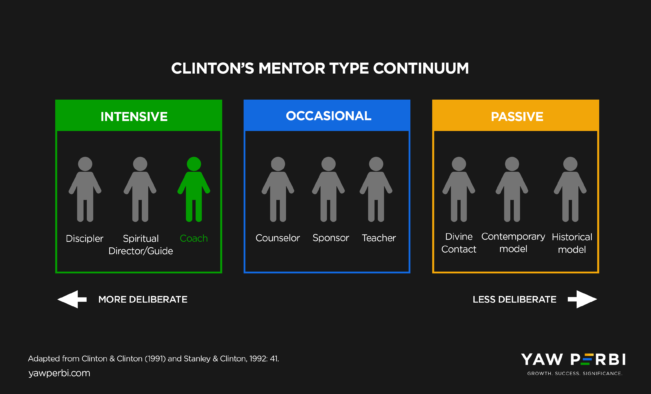
GET COACHED | What’s that?
There is no significant high performer I know who doesn’t have a coach, from entertainment and sports to business. Some have even more than one. How about you?
It was just a one-hour call with a coach. Let’s call him Joe. It changed the trajectory of my life. It wasn’t at a corner office in downtown Montreal or in one of the new plush buildings decorating the Accra skyline. It was at home, just at home; over Zoom. But utilizing the major tool coaches employ–questions, questions and more questions–the lightbulb suddenly came on and within 24 hours I had the oomph to re-start passive income generating projects I had kept procrastinating for a decade! How much that call with Joe cost me in dollars cannot be compared with the kind of lifetime value I gained and lifelong income stream I am cued to earn. I love the CLARITY coaches help bring to our thinking.
SO WHAT IS COACHING?
One of the most (ab)used words in our time is ‘mentor’ or ‘mentoring’ (or ‘mentorship’). I’ve heard and read people actually say coaching and mentoring are two different things. But no, mentoring is a term for the broader framework of empowering relationships every successful person needs (see diagram above) and coaching is a form of mentoring.
According to one of my leadership professors (during my Master of Arts in Global Leadership), mentoring is “a relational process in which a mentor, who knows or has experienced something, transfers that something (resources of wisdom, information, experience, confidence, insight, relationships, status etc.) to a mentoree, at an appropriate time and manner, so that it facilitates development or empowerment” (Clinton & Stanley 1992, 40). Mentoring is relationship, relationship, relationship. A relational experience, relational process, relational exchange.
Coaching, therefore (I repeat), is a form of mentoring, as is each of the other eight types of mentoring shown in the Clinton Continuum diagram above.
WHAT MAKES COACHING DIFFERENT?
First of all, you will notice that coaching is classified among the first third of relationships under ‘INTENSIVE’, unlike counselor, teacher and sponsor (grouped in the middle third) which are OCCASIONAL experiences. For example, as a coach, I recommend at least twice a month meetings with my coachees; sometimes even weekly (depending on their situation, needs and goals) for a minimum of six months. The ideal is a contact every 10 days especially so that no balls are dropped inadvertently.
While the scope of this write-up is not to describe every one of the nine mentoring relationships but to highlight coaching in particular, let me briefly say that a discipler is someone who enables another in the basics of following a religion (especially Christianity), a spiritual guide provides accountability, direction and insight for questions and decisions affecting spirituality and maturity. A coach provides motivation, clarity, challenge, accountability, skills and application needed to meet a goal. Clinton would argue that “the coach’s central thrust is to provide motivation and impart skills and application to meet a task or challenge” (73). Coaching, he would say, “is a process of imparting encouragement and skills to succeed in a task through a relationship” (76).
THE NITTY-GRITTIES
Coaching is an on-going conversation where I (as your coach) provide encouragement, guidance and honest feedback, as YOU pursue YOUR personal and professional goals. I fully expect you to grow yourself and your family/business/organization and succeed in life, by attaining your goals!
There is no significant high performer I know who doesn’t have a coach, from entertainment and sports to business. Without a coach, it is hard for anyone to experience high performance on their own, let alone to achieve what has come to be known as meta performance. In today’s competitive environment, some of the most successful business leaders have experienced tremendous benefits from coaching. Results have included increased revenue and productivity, career advancement, higher employee retention, and the development of more effective business strategies. YOU will define the agenda. YOUR results will vary depending on how long we work together and what actions YOU take.
As a John C. Maxwell trained and certified coach, my clients are expected to, and have experienced, measurable return on investment, increased productivity, and up to 200% revenue growth.
IT WORKS! LET ME HELP YOU.
If I didn’t believe this stuff, I wouldn’t be promoting it. The proof of our belief in anything is our investment of time and money in it. I personally have my own coach who I pay hundred of dollars to for three sessions monthly. At YAW PERBI, our value proposition is authentically empowering C-level executives for exponential growth in 90 days, success within a year and significance for a lifetime (and beyond). Try me. Try us.
We are human, thus limited, and cannot help everybody. Currently I personally have only 10 places each year for authentic, high quality and deep relationship one-on-one coaching so I have had to make the hard decision to focus mainly on C-level executives. The wisdom in that is, as my mentor John Maxwell says about what he calls “the Law of the Lid,” when they get better (raise their lids), everyone else else under them gets better. Knowing how key coaching is, however, no one will ever be turned away. I would be more than happy to refer you to others within my very rich coaching network. Everyone deserves a competent and caring coach.
Apart from one-on-ones, there are times I do one-on-few coaching for a group of executives. My favourite is helping executives work through company DNA (vision, mission & values)! I share about that in a later blog here.
If you’re ready to grow, succeed and be significant, take my hand and let me help you. Let me be your coach.
Bibliography
Clinton, J. Robert and Paul D Stanley. 1992. Connecting: the mentoring relationships you need to succeed in life. Colorado Springs: NavPress.

I’m Serving Up: Here’s How.
Like leadership, there are umpteen definitions of culture. My favourite is the simplest. Culture, whether ethnic or corporate, is simply the way things are done here. How things are seen to be done at YAW PERBI is determined, like Apple or Android, by our unseen Operating System (OS). That OS or worldview feeds our beliefs, informs our values, which in turn determine our behaviour.
As we carry out our vision and mission, here are our 7 YP values and what they mean:
1. People. We value people: People come first; not stuff. People are the only creation that bear the imago Dei (image of God). That should mean something; everything.
a. We are aware that without people we are nothing.
b. We value relationships and foster community.
c. We grow people, clarifying their identity, giving them purpose, unearthing gifts, nourishing persons to flourish.
d. We pride in, promote and protect family.
e. We offer high care to our clientele, with a great deal of empathy.
f. Our exceptional client experience leaves them feeling wonderfully valued.
2. Growth. We value growth: We grow or die. There’s no middle way.
a. We invest in ourselves and invest in others’ growth; continually.
b. We are sworn to lifelong learning in a diverse community till we die.
c. We strive to be knowledgeable and enlightened in order to succeed.
d. We expect pain to be associated with grown and have made peace with the fact.
3. Particularity. We value particularity: One size doesn’t fit all. Each client is different and has a unique life story and makeup.
a. We see and treat each person reverently, as wonderfully made.
b. We invest in getting to know our clients’ life stories, identity, purpose, and SHAPE.
c. We honour the above (a & b) by customizing our offerings.
d. We provide tools to discover and affirm uniqueness of each client and match them to the appropriate relationships and resources.
e. We pride in and promote the prestige of the executive class.
4. Excellence. We value excellence: We go above and beyond.
a. We exceed expectations as a habit.
b. We work hard and play hard.
c. We take our word and commitments seriously.
d. We do not compromise on quality–it is a virtue.
e. We do anything that is worth doing, well.
5. Success. We value success: We are passionate about all-round prosperity.
a. We are committed to the progressive realization of worthy goals and ideals; our clients’ goals are ours.
b. We inspire and motivate ourselves and our clientele to see and seize their dreams.
c. We long for holistic success.
d. We are victory connoisseurs.
6. Authenticity. We value authenticity: No fake folks or fake news, no fake products or services.
a. We lead, coach, author, speak and train with integrity.
b. We are truthful about ourselves and our offerings.
c. We can be trusted.
d. Our ways and means are proven to produce desired results. What we promote works.
e. We are in public who we are in private.
f. We are holistic in thinking and living, in our being and doing.
g. We strive to live and lead such that those who know us and love us the best (family and friends) respect us the most.
7. Significance. We value significance: We live to ‘make a dent in the universe’.
a. We look outward, beyond ourselves.
b. We work towards things that benefit communities, nations and generations.
c. We are inspired by the thought that our best works will outlive us.
d. We bear in mind that only what is done for God’s glory by God’s grace will last.
WHAT’S COOKING & HOW WE’RE SERVING
So now, you don’t only know our menu–the vision and mission–you also know the manner in which we plan to dish it all out. I’m serving up. Take a seat.
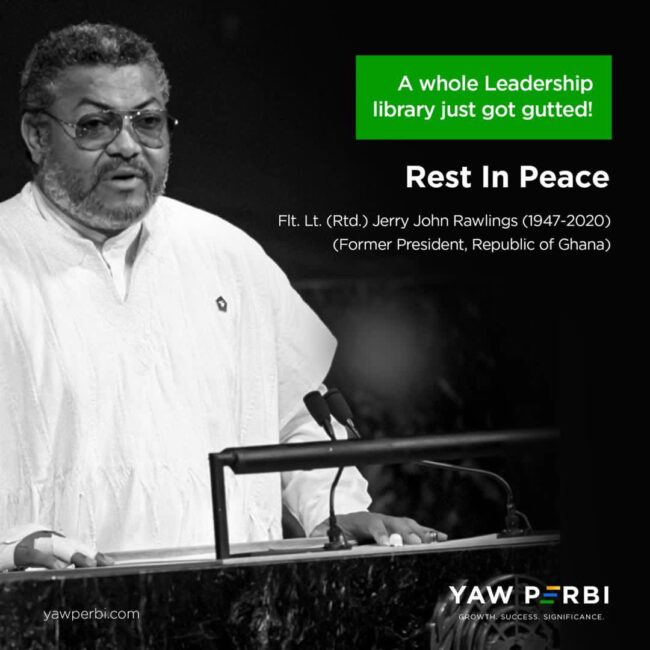
Oh, J J and the “Revolution”
While I hope Ghana’s former president Jerry John Rawlings does Rest In Peace, his passing has evoked many memories and a slew of strong sentiments–the good, the bad and the ugly. My father was Chief Accountant of the Social Security Bank at the time of J.J.’s ‘revolution.’ I have often touted my dad’s integrity. Here’s one of his recent reflections on how his integrity and God’s grace saved his skin during the days of the ‘revolution’, quite literally.
After the apparent unfinished business in 1979, JJ came back onto the public scene by ousting President Hilla Limann on 31st December, 1981. The mindset was people were corrupt; more corrupt than the public acknowledged, and far more widespread.
Soldiers entered our premises where we were staying, at a place called Pig Farm, in Accra. Word must have gone somewhere that our landlady Mame Boatema was hoarding cloth. Her trade was selling cloth at Makola, and there was a concept called “ hoarding”: some sellers used to keep some of the items for sale away from public view, partly in order to create shortages and hence sell what they had at higher prices, and partly, on a much lower scale, in order to pass them on to their favorite patrons and customers. It did not matter whether the things in your possession were legitimately acquired by you or not; if the quantity constituted more than a certain perceived number, you were branded as hoarding, and you suffered consequences. Consequences; various consequences, from outright seizure of the items, to sometimes seizure plus beatings.
On this evening, we had closed from the office and were home when all of a sudden soldiers entered our house. We were then occupying the lower floor of a two-storey building, Mame Boatema the wife of the landlord occupying the top floor. Apparently the soldiers had climbed up, done their search, found nothing and upon descending opened our front door without knocking and entered. Ma gave them a questioning look; I signaled to her to keep calm. They went to every room, found nothing of what they suspected, and left.
When they left, Mame Boatema went to the entrance of the house and shouted to all who were in hearing range, and somehow addressed to neighbours across the road whom she suspected may have sent false information to the soldiers that she was hoarding cloth, how disgraceful they had turned out to be, seeing that nothing untoward was found in the search.
That was just one domestic scenario. There were several in several places, many receiving beatings etc. Soldiers were all over the place, with an agenda they only knew, but mainly looking for “ enemies of the revolution”: namely people who were profiteering.
I was then chief accountant of the Bank ( SSB), one of the departments under my purview being the Stores. SSB was a very popular bank those days. It had been set up by the late Dr Appiah as a subsidiary of the national pension institution SSNIT, and was intended to help fill some identified gaps in the banking industry. Its department called Consumer Credit Department specifically set up to offer workers loans to buy consumables – fridges, freezers, cookers etc- was very popular with workers. The inflation in the country was not only in double digits but also the changes were so rapid that workers were no longer able to source loans easily to buy their needs. Members of staff felt very much appreciated by members of the public- and apparently also envied and hated by some – notably those who could not access the credit for one reason or the other.
Another aspect of SSB’s uniqueness was its opening of cocoa branches. These were new branches at cocoa farming and buying centres to assist cocoa farmers offer their cocoa sales receipts to the Bank for cash/credit. Prior to this, hard-working cocoa farmers after harvesting and selling their cocoa would only be given sales receipts which they had to hang on for very long periods of time and at the mercy of the traditional banks which were not many to start with, nor operating in thick rural areas. This made the Bank also very much appreciated by cocoa farmers.
In addition to this, warehousing finance whereby importers of goods, usually consumables, could access funds from the Bank usually to finance customs and clearing charges of imports by depositing the products in the Bank’s warehouse and have them released in bits based on how they were selling the items and paying the credit in installments was a very welcome initiative in banking.
The Bank’s warehouse was located at the North Industrial Area in Accra, while the Head Office where my office was was at Kokomlemle. On this occasion, I was told that soldiers had gone to the Warehouse and beaten one of the storekeepers. I wondered why, but almost immediately added “ If he did not do anything wrong, would they beat him? Maybe they asked to open the gates for them to see what was inside and he refused.” Little did I know that I was soon to eat back my own words later that night: being beaten before being heard.
People mingled around the frontage of the Bank wondering what was going on; it was near closing time, and I had also closed and joined the rest of the staff in wonder. Before long a military vehicle Pinz Gauer pulled up and with a couple of soldiers and policemen at the back drove up to the front of the Bank. While we were all at a loss as to what was up, I noticed I was pointed out and signaled to approach the vehicle. A soldier asked whether I would be able to answer some questions on the items in the warehouse and I confidently said “Yes.” I was asked to climb into the vehicle.
It was obvious it was most probable I was not going to drive home myself in my car that evening so I gave my car keys to one of the staff I identified and climbed in. We drove off, not knowing where they were taking me. We first went to a base near 37 Military Hospital, sat in the vehicle, wondering what was next. After a long time, and with dusk well settled and darkness in the atmosphere, we drove on, me little knowing where the destination was.
While going, some of the soldiers and policemen were exposed their beef as they expressed their disappointment with not being able to get some of the consumer items when they applied. I kept quiet, not being the manager in charge of that credit, but also being very much aware that no amount of defence would assuage their bitterness and anger.
Soon we were to turn into Burma Camp, and deeper into what I later got to know was Gondar Barracks. “Meat come! meat come!” were shouts that greeted us from soldiers at the camp, and apparently a couple or so other Pinz Guarers already parked ahead of us. “Meat,” as in reference to people who had been sent to the barracks who would be beaten. The prospect of beating civilians was being likened to enjoying some beef or similar juicy meat. I saw soldiers lifting their boots into the bodies of people, including their groins and any other part of the body they could reach with their legs.
Sooner or later it came to my turn. There was an office not far from the road where the vehicle had parked. When I was called, or rather signaled to enter the office, I descended from the vehicle and I heard one of them ask me to remove my eye glasses. Before I knew what was happening, two hefty slaps landed on my cheeks from behind me. I tried to make my way to the office, somehow convinced that there would be some respite there. It was like fighting unknown and unseen forces. While I tried hard to force my way to the office, I felt being restrained with some bearing. Eventually I made my way to the office.
An officer seated at a table asked of my designation . When I told him, it turned out that I was not one they were looking for. They asked me to go back to sit in the vehicle to be driven back. While waiting in the vehicle, some of the soldiers who had become somewhat apologetic said some people had even lost their lives so … apparently to console me that my fate could have been worse. When we departed to be sent to 37 area to find our way home, I opted to get off as soon as we exited the Burma Camp, and fortunately found a taxi that took me home to Pig Farm. Those were days of curfew: no one was expected to be on the streets from 6 pm to 6 am, later to be adjusted to 9 pm to 6 am.
A member of my staff Aggrey Fynn, himself a retired naval officer who was Stores Manager had also been sent to the barracks. I could only pray as to how he was going to be treated. Nursing pains in the cheeks the next few days and a red eye seemed a small price to pay for what was in store for the country, unknown to many, including even those who appeared to be “ in charge.”
Bank forgeries three years later and how some civilians were shot to death and my escape from it is another story altogether.
Reindorf B. Perbi
17 November, 2020
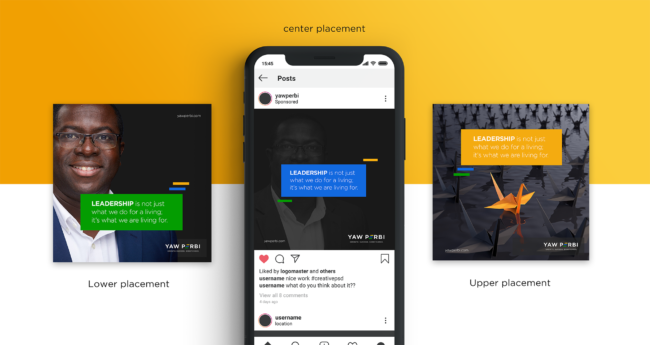
I’m Stepping Down
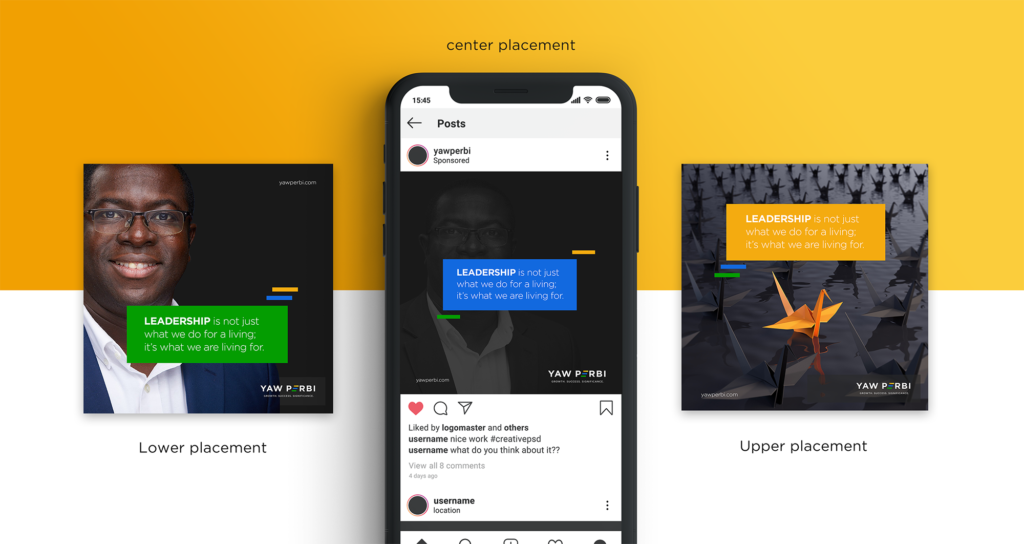
My brand is all about authentic leadership; leading well and helping others do so too. That’s my raison d’être.
So! This is a sequel to my previous I’m Coming Out blog. In that, I copiously explained how, “Prominent among the treasures of this pandemic cum sabbatical year has been the realization that it’s about time I did less of the work of leading corporations and charities and rather focus on raising world class leaders among C-level executives who will go on to lead many good things and many great people.” D.L. Moody once said, “It is better to train 10 men than do the work of 10 men. But it is harder.” He was right.
I am serious enough about this new direction that I’m stepping down as President of ISMCanada with effect from June 2021, Deo volente. When I agreed to this role in March 2013, and officially began in May of that year, my initial arrangement with the Board was a 3-5 year tenure. It’s been almost eight years now! I’ve done double duty. Among other things, I’m happy to have worked with an overhauled senior leadership team to steer the organization to become a Certified Best Christian Workplace, a flourishing organization.
In coming out and stepping down, I’m happy to catalyse, consult for and coach CEOs and other C-level executives in both the marketplace and ministry, as well as continue my speaking/training career which has taken me to some 45 countries of the world. As we launch the YAW PERBI brand, I would like to share our vision, mission, values, unique selling disposition and offerings with you.
VISION
At YAW PERBI, we want to see a flourishing global ecosystem of authentic leaders characterised by healthy growth, holistic success and lasting significance.
MISSION
Our mission, therefore, is to offer authentic and customized relationships and resources to C-level executives to grow personally, succeed professionally and become significant corporately.
YP VALUES
As we go about our vision and mission, our corporate behaviour will be based on the following seven things that are very important to us. We value:
- People
- Authenticity
- Particularity
- Excellence
- Growth
- Success
- Significance
In another blog I go into the fine details of what each value means and how they play out at our company.
UNIQUE SELLING PROPOSITION
We know there are a myriad leadership development and executive coaching companies out there. Our bold value proposition is authentically empowering C-level executives for exponential growth in 90 days, success within a year and significance for a lifetime (and beyond).
OFFERINGS
What exactly are we offering in terms of products and services? We like to say we LIFECAST, an acronym for providing Leadership, Integrity, Family and Entrepreneurship Coaching Authoring Speaking and Training. LIFE is our content focus and CAST comprises the vehicles for delivering the LIFE. By the way, apart from the ‘C’ standing mainly for executive Coaching, it also often involves Catalyzing and Consulting. Authoring encompasses soft and hard products from (e-)books to courses.
The YAW PERBI brand communicates prestige and authenticity, success and significance.
CONCLUSION | CLARITY, NOT CERTAINTY
Even in clearly laying out our vision, mission, values, unique selling proposition and offerings at YAW PERBI, this is not only introducing you to my new brand but inherently providing a lesson for executives, many of whom haven’t clearly laid these things out for the corporations, charities and churches they lead. Even in an uncertain year like 2020, as John Maxwell my mentor says, “Individuals can live without certainty from a leader, but not without clarity. …Your people do not need certainty on every issue; but they do need clarity on every issue.”
I’m out. I’m stepping down. I’ve told you why, when and how. Not everything is certain; but am I clear?

